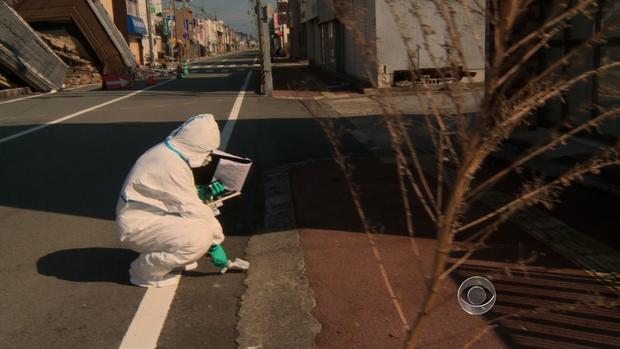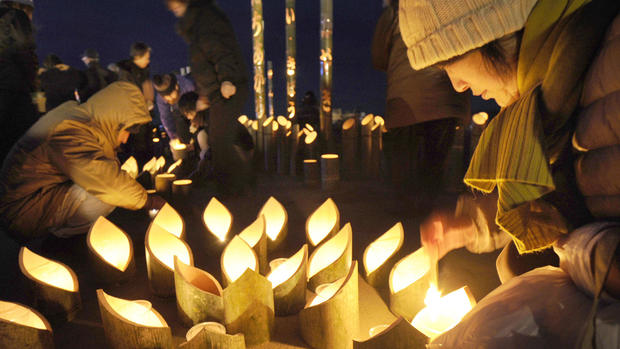Some Japanese towns to stay dangerously radioactive for at least a decade
(CBS News) As Japan continues to clean up after the deadly earthquake and tsunami that killed nearly 16,000 people on March 11, 2011, one thing is clear: something went really wrong at the Fukushima nuclear power plant, and the people who lived nearby will suffer for decades as a result.
The airborne radiation levels in parts of Fukushima prefecture are expected to remain at or close to dangerous amounts at least until 2022, according to a new government report written about in the Japan Times. Government officials project annual radiation dosages to exceed 50 millisieverts in the towns nearest the plant, a level which the government has said makes areas off-limits to the thousands of affected evacuees.
As many as six of the seven municipalities around the Fukushima plant will likely maintain dangerous levels of radiation for a decade, Al Jazeera reports.
Adding to the problem, locals have repeatedly complained to the press about a lackadaisical or disorganized cleanup plan.
"It's been a year already, and nothing," local organic farmer Muneo Kano, 61, complained to Al Jazeera.
Very high radiation, little water in Japan reactorJapan nuclear reactor has fatally high radiation
Parts of 3 towns to reopen in Japan "no-go" zone
Complete coverage: disaster in Japan
"Our biggest fear is: how will we support ourselves?" mushroom farmer Shinichi Sakuma, 44, told CBS News.
Utility company TEPCO has taken most of the blame for putting locals in this situation. When the tsunami hit the plant, it was stacked with more uranium than it was designed to hold, and the plant had missed several safety checks over the course of a decade, Reuters reports. Additionally, some of the decisions officials made in the immediate wake of the tsunami have come under scrutiny as possibly worsening the fallout.
TEPCO has paid compensation to local farmers, but much of the compensation is running out as their livelihoods remain in ruins.
"The government says a lot of things but in terms of concrete action it's done absolutely nothing. We're on our own," local farmer Sakuma told CBS News.
While many have been critical of the government's handling of the Fukushima disaster, some are pointing out that at least they are finally being realistic about the scope of the crisis there.
In the meantime, it appears the Japanese people do not have to worry about more nuclear disasters. Greenpeace International reports that safety and maintenance concerns have led the country to at least temporarily shut down all but one of its 54 reactors, and the last one will likely shut down by the beginning of May. This could be Japan's first nuclear-free summer since 1966.

